★★★
“Beneath the sea, no one can hear you scream…”
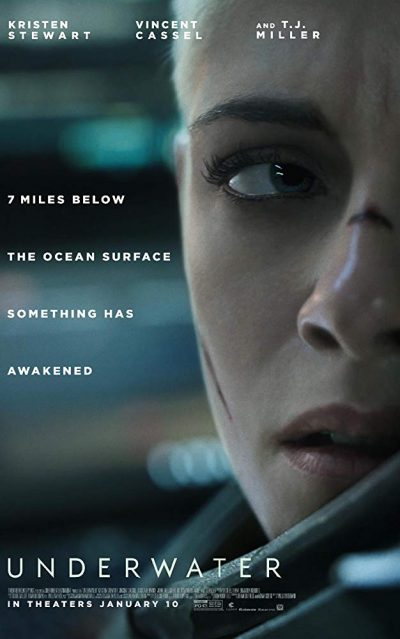 You know the story: A team of experts in a closed contained space, having to deal with ugly monsters and struggling to survive. The blue-print of this variation on Agatha Christie’s And Then There Were None (better known as: Ten Little Indians) was obviously the classic Alien (1979) that introduced us to one of the defining girls with guns, Ellen Ripley. This format was then repeated endlessly by Hollywood, as well as anyone else.
You know the story: A team of experts in a closed contained space, having to deal with ugly monsters and struggling to survive. The blue-print of this variation on Agatha Christie’s And Then There Were None (better known as: Ten Little Indians) was obviously the classic Alien (1979) that introduced us to one of the defining girls with guns, Ellen Ripley. This format was then repeated endlessly by Hollywood, as well as anyone else.
A special sort of subgenre of this story formed in the late 80s, when studios came to the idea of exchanging outer space for the inner space of the (deep) sea. That resulted in usually trashy but mostly entertaining movies such as Deep Star Six, Leviathan, Virus, Sphere or Deep Rising. Heck, even AlienS director James Cameron created a more positive version of the usual underwater interaction, with friendly aliens, in “The Abyss” (1989). But as far as I can see this genre faded with the 90’s. Recent watery efforts were more shark- or crocodile-focused!
The Alien franchise seemd to be stuck in the hands of Ridley Scott, who wasn’t willing to give anyone else a shot at the series, He said, before Alien: Covenant and about Prometheus, “I thought we should move on. I thought the aliens were done.” Well, if what you deliver is worse than what we got before, why bother? And if you think like that, maybe you shouldn’t cling on to ownership of the franchise. Audiences usually wont the same experience they had last time and if you don’t deliver, will be disappointed. Here’s another pearl of wisdom: If it ain’t broke, don’t fix it! So 20th Century Fox came up with the idea of resurrecting this subgenre under water. And it has to be said, while Underwater is hardly original, and definitely derivative if you know the Alien movies, it is better and certainly more entertaining than the last two Alien entries from Scott. It never drags, and the “idiocy level” that too often comes with this genre and its tropes, is credibly low.
The story in brief: Deep sea engineers are faced with a sudden accident, after water has flooded their facilities, destroying a large amount of the installation and probably killing off many of the workers who didn’t manage to get to the escape pods. A couple of survivors who find each other must go on an obstacle course deep, well… under water to reach these pods. Okay, that plot probably wouldn’t trouble a match-box, but that does not necessarily have to be a negative. I’ve found in the past, that very often those movies with a simpler, more straighforward premise are the ones which are the most efficient in delivering the goods.
So it proves with this. Yes, we all have seen it before – but not necessarily better. When I look at the list above of “underwater horror movies”, most of them were not good at all. And what the Alien franchise itself delivered, starting probably with David Fincher’s life-less Alien 3 (1992) and ending with Scott’s efforts “to move in a new direction,” was also not very satisfying. Considering that, Underwater is actually quite decent. There is no long build-up with character presentations that have tended to fall flat in recent films of this ilk. The movie goes into action almost immediately, hardly giving Kristen Stewart (with her short-cut blonde hair bearing a strange similarity to 90’s Lori Petty) the chance to finish brushing her teeth.
And it continues at quite a brisk pace, within an economic and more restrained than usual running-time of 95 minutes. We get action, tension, deep sea monsters attacking and reducing the crew, some decent character interaction, a tiny droplet of blood and rather too much of T. J. Miller joking and Jessica Henwick screaming while running around. I’ve seen worse. Much worse, and recently. Indeed, if you are just looking for some good horror survival action and a distraction from your daily routine, this film may do it for you.
Stewart herself seems to have some bad luck. After years making indie-movies in a post-Twilight wilderness, the hope was obviously to return to big Hollywood movies. But this seems to be even more of a financial failure at the box-office than her recent “woke” Charlie’s Angels remake. Though this is actually good entertainment, and free of the usual agenda that has sadly become commonplace nowadays in Hollywood movies. That may have to do with the fact that the movie was already finished – like the upcoming The New Mutants from Fox – in 2017! For reasons I don’t know it was kept back. Did Scott exercise some power to distance it from Alien: Covenant, which also came out in 2017? Did they want to wait until Covenant had squeezed out all possible financial revenues?
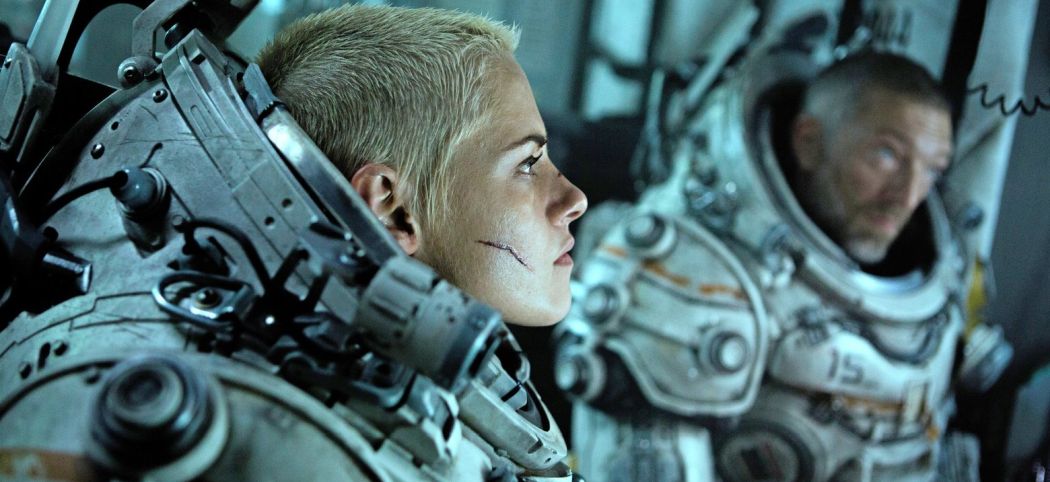
Whatever the reason, it became part of Disney when the mega-conglomerate bought 20th Century Fox. And obviously, Disney didn’t really care for the welfare of this movie, so they just threw it out there, with what felt like hardly any marketing. Which is a pity, because it’s a nice bigger-budget horror movie that could have attracted more people in cinemas. I personally guess it might get a second life on Netflix or the new Disney online streaming service later.
The film also stars Vincent Cassel who was the only other actor I knew of the underwater crew, apart from Stewart. Mind you, you are not spending much screen time with most of them. Nevertheless there are some interactions that, if not really going deep, give enough of an emotional connection at least to wish they will get out of this unfortunate situation alive. But mainly it’s a showcase for Kristen Stewart who – and I really have to stress I don’t typically care for her much at all – gives a good and credible performance here.Though you’ll have to deal with the fact that she is playing a deep sea rig engineer here, a role I would probably have associated with a muscle-bound man!
I personally wish the last two Alien films by Scott would have been something like this. It could have been a lot more satisfying than the time we had to spend with David, the Fassbender-android. That said the Alien formula – like the Terminator one – seems to have had its day, thanks to having been exploited what feels like a few hundred times. It’s really time for Hollywood to come out with some new ideas. Therefore only 3 stars from me, albeit well-earned ones!
Dir: William Eubank
Star: Kristen Stewart, Vincent Cassel, Jessica Henwick, John Gallagher Jr.
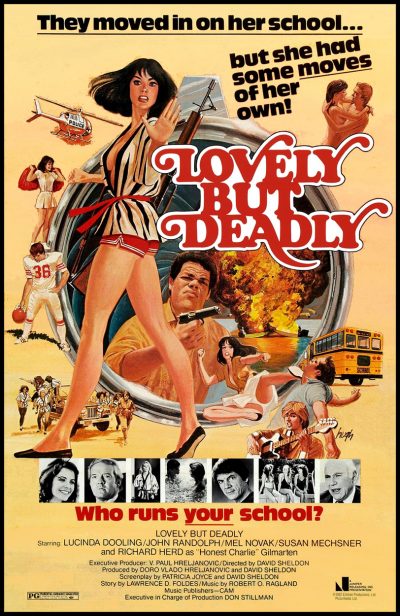 After her brother drowns while high on drugs, Mary Ann “Lovely” Lovitt (Dooling) goes undercover at his school, Pacific Coast High, in order to root out the dealers responsible for his death. She discovers that the problem is far larger than is admitted, with those involved, and includes not just some of the most revered pupils e.g. star players on the football team (and, on more than one occasion, their jealous girlfriends!). A number of adults are also culpable, including leading school boosters, all the way up to leading local businessman ‘Honest Charley’ Gilmarten (Herd). Fortunately, Mary Ann is an expert in martial-arts, so proves more than capable of defending herself when attempts are made to dissuade her from investigating further.
After her brother drowns while high on drugs, Mary Ann “Lovely” Lovitt (Dooling) goes undercover at his school, Pacific Coast High, in order to root out the dealers responsible for his death. She discovers that the problem is far larger than is admitted, with those involved, and includes not just some of the most revered pupils e.g. star players on the football team (and, on more than one occasion, their jealous girlfriends!). A number of adults are also culpable, including leading school boosters, all the way up to leading local businessman ‘Honest Charley’ Gilmarten (Herd). Fortunately, Mary Ann is an expert in martial-arts, so proves more than capable of defending herself when attempts are made to dissuade her from investigating further.




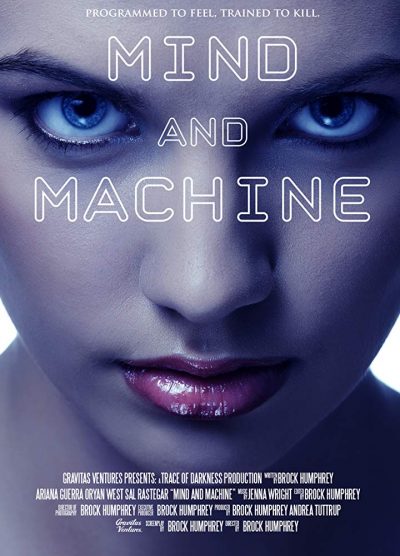 Intelligence without morality to govern it, is psychopathy. So what happens when you create an intelligent machine, but deliberately avoid installing any kind of moral compass? It’s an interesting idea for a film. Not that you’d know it from this unconvincing effort, which sucks the potential out of it. In this near-future – it’s set in 2024, close enough to now, no actual work is required on the part of the makers – androids have become part of everyday society in many roles. Crime boss Isaac Lynch (Restegar) orders technician Leo Cameron (West) to make one without a conscience, so that it can be used as an assassin, saving those pesky hitman fees. Only Leo crafts the robot, Maya (Guerra), in the image of his late wife. On the plus side: he gets to see his wife again. On the other hand: she’s an amoral killer. Didn’t think that through too well, did he?
Intelligence without morality to govern it, is psychopathy. So what happens when you create an intelligent machine, but deliberately avoid installing any kind of moral compass? It’s an interesting idea for a film. Not that you’d know it from this unconvincing effort, which sucks the potential out of it. In this near-future – it’s set in 2024, close enough to now, no actual work is required on the part of the makers – androids have become part of everyday society in many roles. Crime boss Isaac Lynch (Restegar) orders technician Leo Cameron (West) to make one without a conscience, so that it can be used as an assassin, saving those pesky hitman fees. Only Leo crafts the robot, Maya (Guerra), in the image of his late wife. On the plus side: he gets to see his wife again. On the other hand: she’s an amoral killer. Didn’t think that through too well, did he? Coming in on a wave of hype, e.g. “The Best Indie Science Fiction Movie Since Moon“, I guess I should have listened – because I didn’t think Moon was
Coming in on a wave of hype, e.g. “The Best Indie Science Fiction Movie Since Moon“, I guess I should have listened – because I didn’t think Moon was  You know the story: A team of experts in a closed contained space, having to deal with ugly monsters and struggling to survive. The blue-print of this variation on Agatha Christie’s And Then There Were None (better known as: Ten Little Indians) was obviously the classic
You know the story: A team of experts in a closed contained space, having to deal with ugly monsters and struggling to survive. The blue-print of this variation on Agatha Christie’s And Then There Were None (better known as: Ten Little Indians) was obviously the classic 
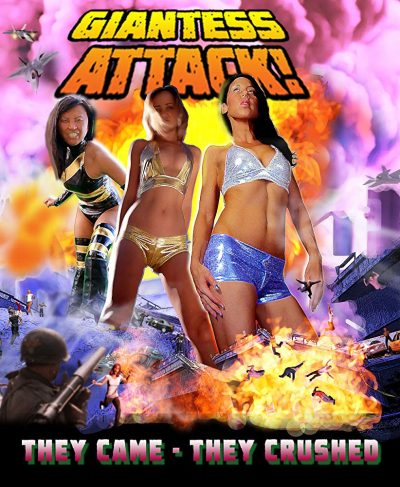 Diedre (Tacosa) and Frida (Riley) are the fractious stars of low-rent superhero show, Battle Babe and Combat Queen. When the series is canceled, they go on a bit of a binge, ended only by the appearance of two tiny aliens from Metaluna (Nguyen), who give the pair of very drunk Earth women devices that will turn them into Team Giantess Attack. These are intended to be used to rid the planet of evil. Needless to say, things don’t quite work out that way. The military, under Gen. Smedley Pittsburgh (Rowen), want to get their hands on this alien technology. But D+F won’t give it up and, instead, use it to go on the rampage and take revenge on those who previously wronged them.
Diedre (Tacosa) and Frida (Riley) are the fractious stars of low-rent superhero show, Battle Babe and Combat Queen. When the series is canceled, they go on a bit of a binge, ended only by the appearance of two tiny aliens from Metaluna (Nguyen), who give the pair of very drunk Earth women devices that will turn them into Team Giantess Attack. These are intended to be used to rid the planet of evil. Needless to say, things don’t quite work out that way. The military, under Gen. Smedley Pittsburgh (Rowen), want to get their hands on this alien technology. But D+F won’t give it up and, instead, use it to go on the rampage and take revenge on those who previously wronged them.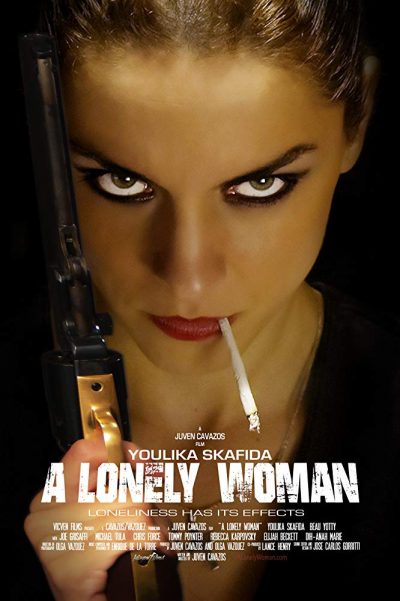 It’s one of those weird coincidences. I watched two action heroine flicks last weekend and both, while American, starred actresses who were born in Greece. Really, what are the odds?
It’s one of those weird coincidences. I watched two action heroine flicks last weekend and both, while American, starred actresses who were born in Greece. Really, what are the odds? 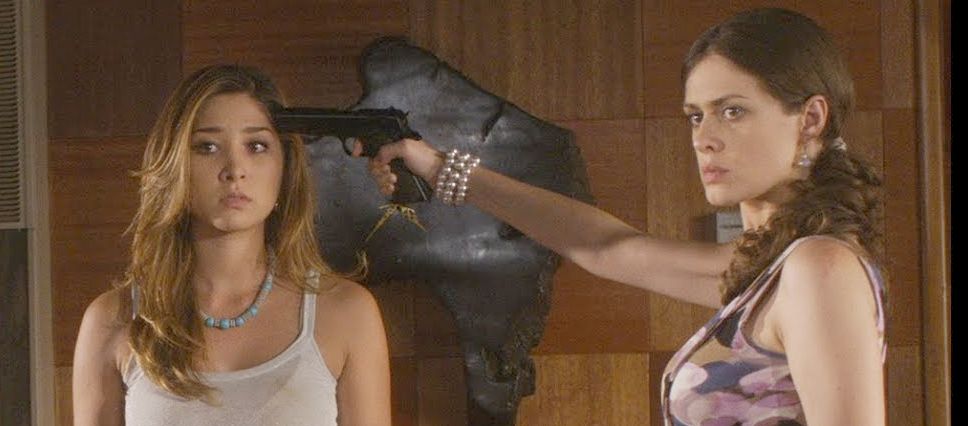
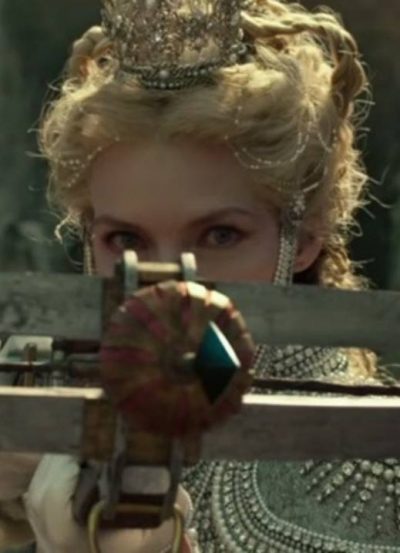 Dear god, the scenery in this is almost unutterably lovely to look at. It’s the kind of film which left me wishing I’d seen it at the cinema, even if I fear my head would have exploded at the beauty of it all. Right from the opening sequence, featuring an insane swooping shot which seems to last forever, it is just gorgeous. The final battle is so lush, a war occurring in a castle the approximate size of Bavaria, against a back-drop of exploding red-clouds made from fae genocide dust, it should be bottled and sold in the skin-care aisle.
Dear god, the scenery in this is almost unutterably lovely to look at. It’s the kind of film which left me wishing I’d seen it at the cinema, even if I fear my head would have exploded at the beauty of it all. Right from the opening sequence, featuring an insane swooping shot which seems to last forever, it is just gorgeous. The final battle is so lush, a war occurring in a castle the approximate size of Bavaria, against a back-drop of exploding red-clouds made from fae genocide dust, it should be bottled and sold in the skin-care aisle.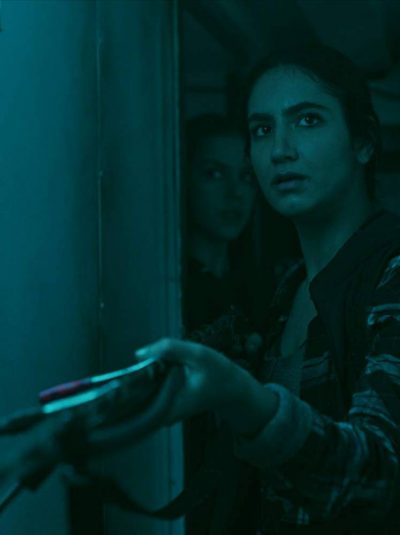 My heart sank in the first few seconds, when I discovered that this was a SyFy Original Movie. The really poor CGI, of a ship sailing on the ocean, seemed to confirm that I was in for one of their bottom of the barrel productions. In the end, however, this was… just about okay. Incredibly derivative, to be sure, and that’s not its only problem. Yet it still just about sustained my interest. That’s certainly not always the case for SyFy Original Movies, to put it mildly.
My heart sank in the first few seconds, when I discovered that this was a SyFy Original Movie. The really poor CGI, of a ship sailing on the ocean, seemed to confirm that I was in for one of their bottom of the barrel productions. In the end, however, this was… just about okay. Incredibly derivative, to be sure, and that’s not its only problem. Yet it still just about sustained my interest. That’s certainly not always the case for SyFy Original Movies, to put it mildly.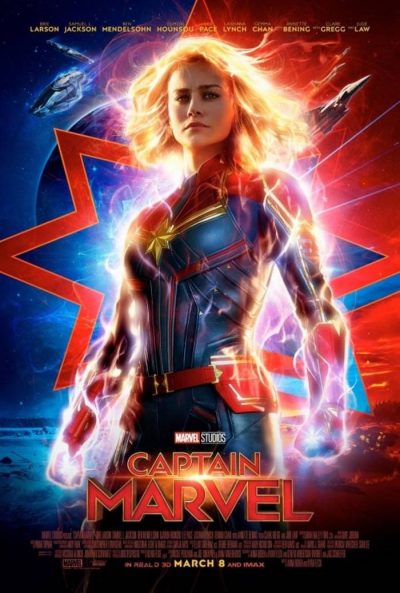 I had a couple of potential concerns going into this. Firstly, my general unfamiliarity with the Marvel Cinematic Universe. This was film #21 in their Infinity Saga. I had seen seven. Would this be like trying to follow Game of Thrones‘s penultimate episode, after having missed two-thirds of what preceded it? Secondly, Brie Larson’s press complaints about movie critics being “overwhelmingly white male.” Yep, guilty as charged, m’lord. Would this questionable attitude – that your skin colour and genital configuration matter more than what you do or say – carry over into the movie?
I had a couple of potential concerns going into this. Firstly, my general unfamiliarity with the Marvel Cinematic Universe. This was film #21 in their Infinity Saga. I had seen seven. Would this be like trying to follow Game of Thrones‘s penultimate episode, after having missed two-thirds of what preceded it? Secondly, Brie Larson’s press complaints about movie critics being “overwhelmingly white male.” Yep, guilty as charged, m’lord. Would this questionable attitude – that your skin colour and genital configuration matter more than what you do or say – carry over into the movie?